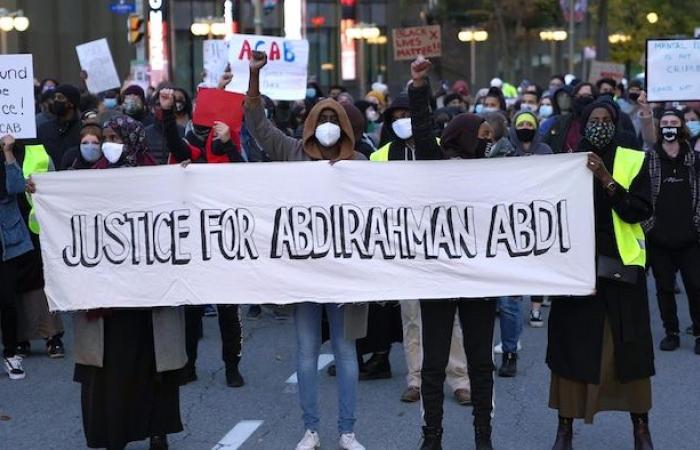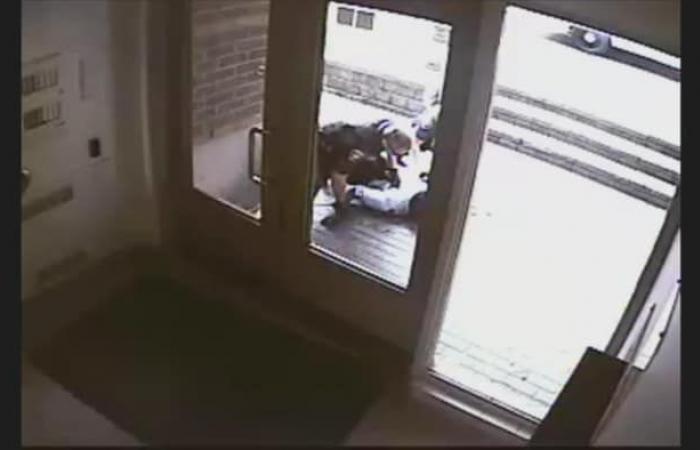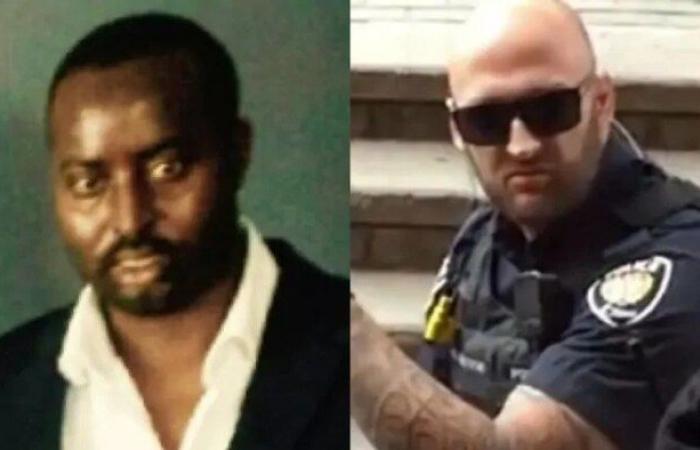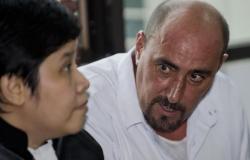There was damage to my vehicle, which had never happened in 20 years. Very often, when I went to work, I always saw the same man, in the same car, following me. No matter what path I took, he followed me. I never knew who he was. I was afraid to report this to the police
she confided.
My family finally told me: either you move out or you stop being involved. I believe we need to stand up and be part of the solution, so I chose to move.
Ms. Ali’s new residence is also equipped with several surveillance cameras. This gives her a feeling of security, she says.
The one who helped found the coalition Justice pour Abdirahman Abdi
said despite everything that he felt community mobilization
.
The 38-year-old Canadian of Somali origin died the day after a heavy-handed police arrest.
We quickly had support from across Canada. We couldn’t save Abdirahman’s life, but we want to save others
she testified with conviction.
In the wake of the death of the Canadian of Somali origin, a movement called “Justice for Abdirahman” took shape, organizing several rallies, notably in Montreal, Ottawa, Toronto and Mississauga. (Archive photo)
Photo: The Canadian Press / Justin Tang
On defense from the first hour
From the fourth floor of his apartment, Nimao Ali filmed a portion of the police intervention as well as the wait for paramedics for a few minutes on July 24, 2016. This video was presented at the trial (new window) of police officer Daniel Montsion, who was found not guilty (new window).
While filming the video, Ms. Ali quickly recognized Abdirahman Abdi since he lived in the same building.
He was a calm, kind and silent person. He didn’t talk much, but he always said hello. I’ve never seen him be the least bit aggressive
she remembers about her neighbor.
When I stopped filming, I went downstairs to see his relatives. They were dismayed
continued the one who offered to accompany Mr. Abdi’s parents and siblings to the hospital to play the role of translator between the family and the medical staff.
The family was certain he was already dead. So she wanted to pray, but the police did not want to. I argued with them. They finally agreed to let the family pray
she remembers.
Officers Dave Weir (left) and Daniel Montsion used force to handcuff Abdirahman Abdi on July 24, 2016. (File photo)
Photo: Screenshot
A job far from finished
Nimao Ali showed several signs of emotion during his speech. The lawyer for the public inquiry, Alessandra Hollandssuggested a few times that he take a minute to collect his thoughts. Each time, the witness refused.
I just want to finish my testimony. […] Sometimes I think I’m correct, but I’m not. Knowing that I was going to testify today has deprived me of sleep these last few days. It’s been over eight years. I can’t get these images out of my head
she added, specifying that her two children had observed the scene with her during this hot summer day.
My son was 5 years old. He had nightmares about it. I tried to reassure him, tell him that everything is okay. My daughter was 18 years old. She saw everything. She understood everything. We were never offered any support to get through this whole process, the whole trial… Never
she lamented.
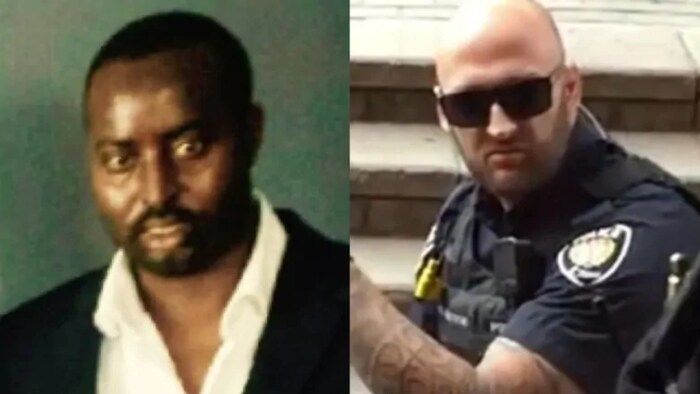
Accused of involuntary manslaughter, aggravated assault and assault with a weapon, police officer Daniel Montsion (right) was found not guilty in 2020 at the end of his trial during which he did not testify. (Archive photo)
Photo : CBC
According to her, the case of Abdirahman Abdi is a concrete example of the tense relations between the Somali community of Ottawa and the police force of the national capital. She attended a few meetings between police and the family over the years.
I have already addressed the issue of systematic racism, but it has never been recognized by the police
she replied when a representative of Black Action Defence Committee asked him the question.
She reiterated some possible recommendations that she would undoubtedly like the five members of the jury of the coroner’s inquest to retain.
The police must recruit black Muslims. There must be some at all levels of the hierarchy. […] Also, it would be to let people who look like the victims make presentations to their community to better understand the context and the faith. It would be a greater success.
Nimao Ali was the sixth witness at the coroner’s public inquest, the agenda of which was slightly changed on Monday. Initially, she was to be the ninth witness to take the stand.

